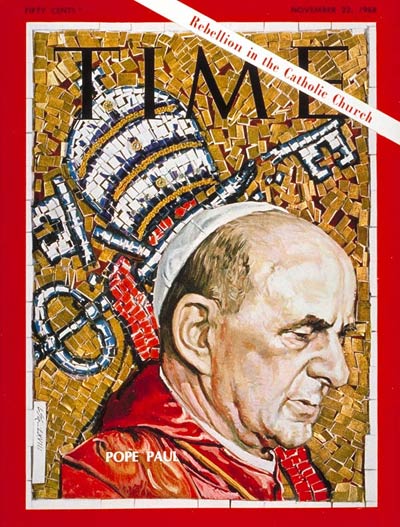The pejorative notion of clericalism has a number of different meanings. For many Protestants and secularists, this term simply means that the clergy have, and exercise, too much authority in the Catholic Church. Just how that’s their business is a mystery, unless they assume that the Church is somehow subject to their ideas and should conform to them.
For Catholics, clericalism usually refers to a kind of dominance of laity by clergy outside of their rightful spiritual authority. Pope Francis often speaks of this form of clericalism, in the way that clergy behave either in their regular daily pastoral work or in the political sphere.
St. Jose Maria Escrivá, the founder of Opus Dei, identified another kind of clericalism in those who try to turn the laity into pseudo-clerics – and identify the truly “committed” layperson as someone who directly serves the Church, rather than someone who is immersed as a Christian in social and political life.
But there is yet another form of clericalism that seems just as widespread today. This is the clericalism that assumes that many of the laity are simply incapable of really understanding the Church’s teachings or are incapable of living up to them when the demands are high. This is the kind of subtle but deadly clericalism Pope Paul VI hinted at in Humanae vitae.
Pope Paul clearly recognized of the moral teaching proposed by the Church through the ages on contraception, which he was reaffirming with regards to the modern means of contraception like the pill and sterilization, “no doubt that to many it will appear not merely difficult but even impossible to observe.” But he explained, “The teaching of the Church regarding the proper regulation of birth is a promulgation of the law of God Himself.” No Catholic can really believe that God has promulgated a law that, even with the help of the grace of Jesus Christ, Catholics will not be able to observe.
At stake here is not simply the moral law, but the power of the Redemption itself. And this theme was picked up many times by St. John Paul II. The practical impossibility of observing certain commandments has been a hallmark of certain heresies, precisely because it implies that grace cannot overcome very real human frailties.
Thus, Pope Paul adds this salutary teaching:
Indeed it cannot be observed unless God comes to their help with the grace by which the goodwill of men is sustained and strengthened. But to those who consider this matter diligently it will indeed be evident that this endurance enhances man’s dignity and confers benefits on human society.
Clearly, in play here is also the dignity of the human person under the grace of Jesus Christ.
To fulfill a difficult moral law always involves a struggle – for some people, a very great struggle. But the believing Christian will not lightly absolve himself from responsibility for personal failure at the expense of denying the power of God’s grace. And the assumption by some clergy and theologians that most laity are simply incapable of either understanding the truth of certain moral laws or of fulfilling them is not exactly a way of recognizing or promoting the dignity of laypeople.
Pope Paul anticipated this and reminded the clergy – priests and bishops – to “speak with full confidence, beloved sons, convinced that while the Holy Spirit of God is present to the Magisterium proclaiming sound doctrine, He also illumines from within the hearts of the faithful and invites their assent.”
Assuming that many if not the majority of laity are simply incapable of understanding the teaching of the Church on difficult moral matters (and I might add sacramental matters) is effectively to deny that the Holy Spirit has the power to “illumine” their souls. Paul was warning Church leaders not to underestimate the power of the Holy Spirit or to undercut the dignity of the lay Christian – perhaps the very worst and most damaging form of clericalism.
When Catholics read that half of Christian marriages are probably invalid because of a lack of due discretion or failure to understand the essential rights and duties of marriage, it strikes some of us as indicative of such clericalism. Marriage is a natural institution, and if its essential rights and obligations are beyond the understanding of a majority of Catholics, then what does that say about the human dignity of these men and women?
The Church has, until now, always assumed that the simplest of people could rather easily enter a valid marriage. Today, given the numbers of supposedly invalid marriages, even many well-educated people are evidently incapable of understanding and assenting to the basic elements of marriage.
We are also told that many Catholic laity cannot understand the canonical and moral precepts taught by the Church, and therefore are often likely to be subjectively innocent and actually living in the state of grace, even though their conduct is objectively and seriously evil. Once again, what does this say about the dignity of such persons?
And just what does this new moral casuistry imply about the faith of such laymen? Pope Paul reaffirmed that the binding character of the Church’s moral teachings for the formation of consciences does not depend upon the reasons put forward supporting the moral norms. These norms are binding for a Catholic’s conscience simply because of the Church’s Magisterium, which has the light of the Holy Spirit in teaching these truths.
To suggest that a Catholic is not bound by the Church’s teaching because he can’t understand or simply rejects the reasons put forward to support such norms is simply to undo what Saint Paul refers to as the obedience of faith.
Exactly how does that result promote rather than denigrate the personal dignity of the layperson? Clericalism comes in a variety of forms, but none more damaging. That in itself is something well worth thinking about these days.















